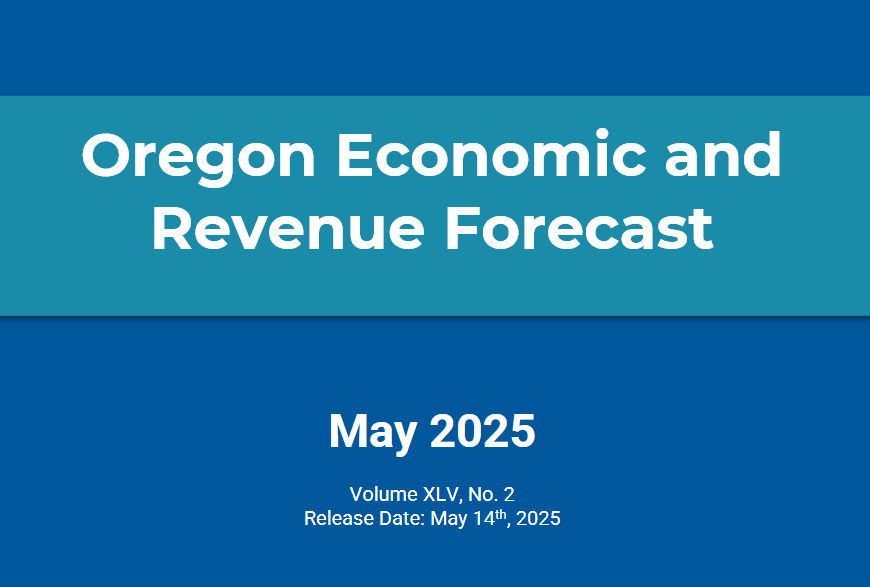Deadlines, Detours, and Directionless Drift

Oregon lawmakers are entering the final stretch of the 2025 session, with just six weeks remaining before the state constitution requires them to adjourn. So far, the session has been marked more by anticipation than action and many of the most consequential issues remain unresolved. The absence of a defining issue is perhaps the defining issue of the session, itself, creating an environment where everything feels both possible and impossible — as if the legislature is caught in an infinite loop of doing everything while, somehow, achieving nothing.
Transportation Package: Dead End or Scenic Route?
Last Friday marked a key turning point in the session: the second chamber scheduling deadline, requiring policy committees to schedule work sessions on bills in their second chamber or watch them disappear in the session’s waning weeks. The transportation funding package, viewed by many as the session’s signature initiative, appeared dead at the deadline. The Joint Committee on Transportation failed to schedule a vote by the deadline, raising serious questions about its viability. By Wednesday, however, the presiding officers used their extraordinary powers to form a new special committee to keep those conversations alive. The discourse around the transportation funding package has oscillated for weeks between urgency and indecision, leading many to wonder if talks will collapse under their own weight or find their way into a special session later this year.
Caught in the Crosswind of Congress
While the session may lack a defining issue, its driving forces are the national politics of federal trade, spending, and tax policy. On Sunday, the U.S. House Budget Committee is poised to vote on its long-anticipated budget reconciliation package — dubbed the “One Big Beautiful Bill” — which pairs the reauthorization and expansion of the expiring tax provisions of the Tax Cuts and Jobs Act of 2017 with federal spending reductions aimed at offsetting their deficit impact.
The package poses both political and fiscal challenges for Oregon. State leaders have been bracing for the potential impact of federal spending cuts for months, wary of the downstream effects on healthcare, food assistance, education, and other services reliant on federal funding. However, if Congress fails to renew those tax provisions, the state’s revenue forecast could fall into a freefall. Although the 2017 federal tax law is most known for its politics as a “tax cut,” it actually raised state revenues by narrowing deductions and other tax expenditures — money the state bakes into its anticipated revenues.
All of this leaves Oregon Democrats in an uncomfortable position: eager to criticize the reconciliation package for its social and economic consequences, while quietly hoping for its passage to avoid a disturbance to the state budget.
What Comes Next
With only six weeks remaining in the session — and a lot of work ahead — the legislature is entering a phase where most committees complete their work and shut down. By Friday, May 23, policy committees must hold their votes on remaining bills, leaving only the budget, tax, and rules committees active for the rest of the session. The closing of committees is both a moment of relief and a moment of frenzy — with fewer formal meetings, legislators often find themselves with more downtime, which can create conditions for once-dead ideas to quietly resurface.
Over the next couple of weeks, the Ways & Means Committee will begin assigning policy bills with budget impacts to subcommittees to vet funding proposals. These assignments serve as an unofficial filter for the session — not every bill is assigned and those left out are effectively removed from contention. Meanwhile, the tax-writing committees are continuing their work evaluating proposals and beginning the process of assembling a closely watched package of tax expenditures and, if history is any guide, potential tax increases.
In theory, this is the stage at which the major components of the session begin to fall into place. In practice, however, the pieces are still shifting, but it’s unclear whether anyone’s playing to win or just trying not to lose.

What We're Reading This Week
- Although the Joint Committee on Transportation missed the deadline to schedule a vote on a transportation funding package, the committee's co-chair insists the legislature will complete the job this session.
- A Portland city councilor is pitching an increased tax on CEO compensation as a means to shore up a structural budget shortfall. The proposal is riddled with problems, especially since the city lacks the charter authority to create new taxes without first seeking voter approval.
- Gun and abortion politics have dominated recent sessions, but have been slow to come up this year. The Senate is slated to take up its first gun-related bill, which could raise tempers in the building.
- On Tuesday, the Estate of Paul G. Allen announced its intention to sell the Portland Trail Blazers. If the team sells, the taxes imposed on the sale would boost state revenues and, potentially, trigger the personal income tax kicker.





